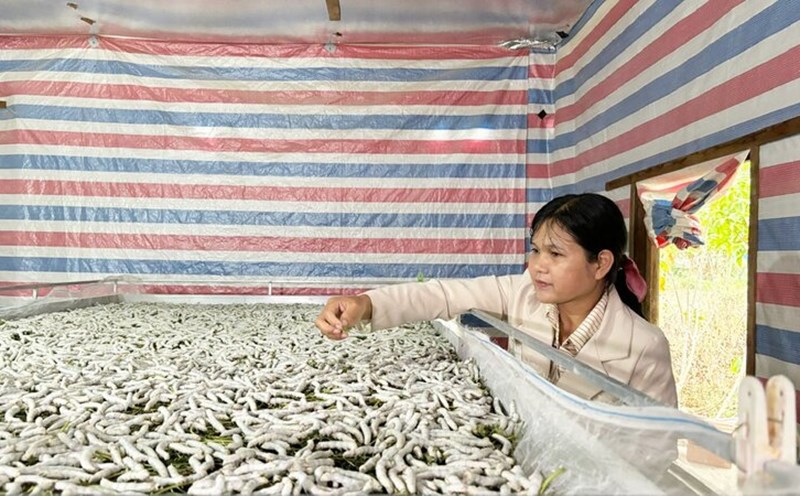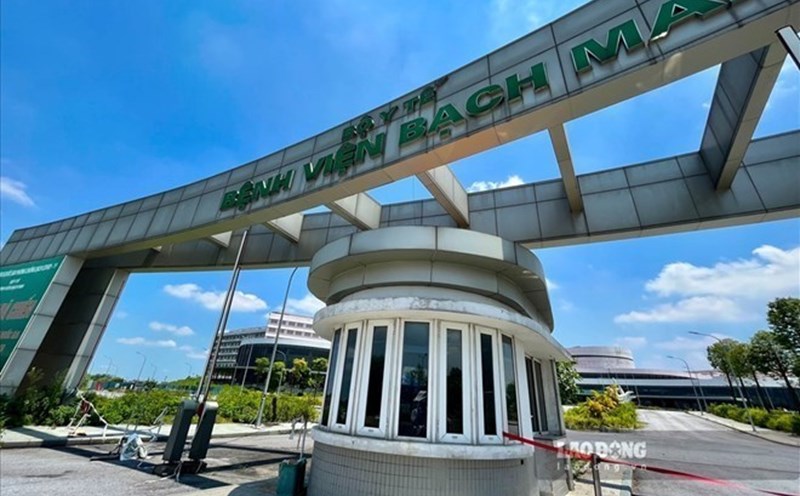A cadre needs to be like a knife
The Ministry of Home Affairs has just issued an orientation for 36 job positions at the commune level, including 8 leadership and management positions and 28 professional and technical positions arranged by industry and field. Previously, according to Decree No. 62/2020 of the Government and guiding circulars, the commune level had up to 97 job positions. Self-determination in localities has caused many places to fall into the situation of "a civil servant is a job position", leading to a large number of positions.
Dr. Nguyen Tien Dinh - former Deputy Minister of Home Affairs, said that this guidance will be an important basis for commune-level administrative units to determine, arrange and use cadres and civil servants according to their functions and tasks in accordance with the two-level local government model.
Dr. Nguyen Tien Dinh affirmed: A job position may require many cadres and civil servants to take on or one cadre and civil servant can do many things. From there, it will ensure streamlining the apparatus and streamlining the payroll according to the requirements of the Central Government".
Sharing the same view, Mr. Nguyen Duc Ha - former Head of the Party Committee (Central Organizing Committee) - said that clearly defining job positions will help shape the payroll framework at the commune level, identifying the specific tasks of each cadre and civil servant.
However, he especially noted that with the requirements of the new task, the team of commune-level cadres must improve their qualifications, knowledge and capacity must also be comprehensive. "A cadre needs to be like a mixed-use knife, cut well, split well, and cut well. Cadres are good at one thing but can do many other things" - he compared.
Supplementing commune-level human resources, overcoming work pressure
In the context of the two-level government operating, the Ministry of Home Affairs requires provinces and cities to ensure the minimum number of commune-level civil servants according to the instructions in Official Dispatch 09/2025, while urgently adding human resources in overloaded areas such as information technology, digital transformation, accounting, land administration, and construction.
Mr. Nguyen Tien Dinh said that after the merger, many sectors such as land, environment, and land use were often overloaded. To resolve this issue, the Central Government allows localities to transfer civil servants between communes and wards or sign labor contracts with specialized people, even from non-state sectors. This is considered a new approach, helping to overcome the shortage of human resources, ensuring smooth operation of the two-level government apparatus.
In addition, the examination, selection or acceptance of civil servants according to Decree 170/2025 among unused positions is also considered a step forward, expanding opportunities to attract talent to work at the facility. This contributes to improving the quality of the team of commune-level civil servants, meeting the increasingly high requirements of tasks.
In parallel with streamlining the apparatus, the need for decentralization and delegation of power is set out more strongly. Dr. Nguyen Tien Dinh analyzed that the three General Programs for State administrative reform (2001; 2011-2020; 2021-2030 all emphasize this content, associated with the revolution of streamlining the payroll and building a serving government.
Mr. Phan Trung Tuan - Director of the Department of Local Government (Ministry of Home Affairs) - informed that there are currently 1,065 tasks that are decentralized and delegated to localities, many of which are directly assigned to the commune level. "The workload is very large, the pressure is very high, especially when the requirements for digital transformation and technology application are increasingly high, while the team capacity between localities is still different," said Mr. Tuan.
In fact, many capable cadres are often assigned many additional tasks, leading to an imbalance and great pressure in handling daily work. This inadequacy is even more evident in remote areas - where information technology infrastructure is limited, and staff have difficulty meeting digital transformation requirements.
To overcome this, the Ministry of Home Affairs is coordinating with localities to organize training sessions, fostering knowledge and skills for grassroots cadres. This is considered an important solution to reduce the gap in capacity between regions, creating synchronization in task implementation.












